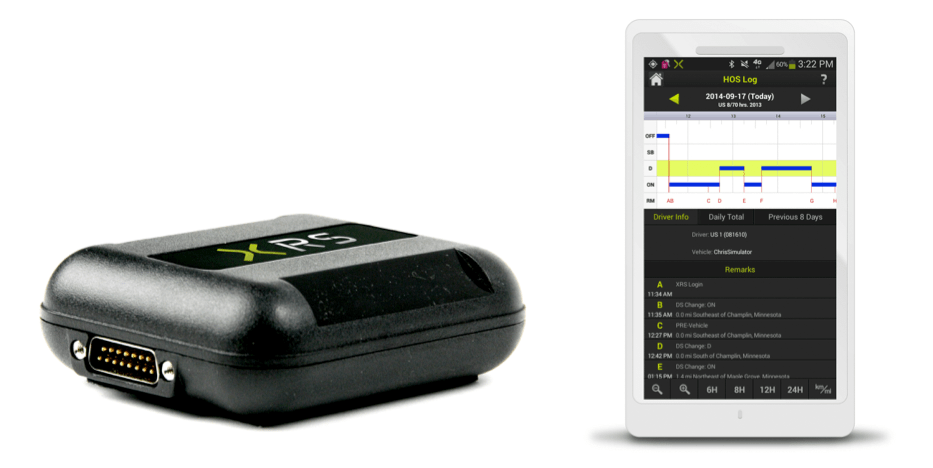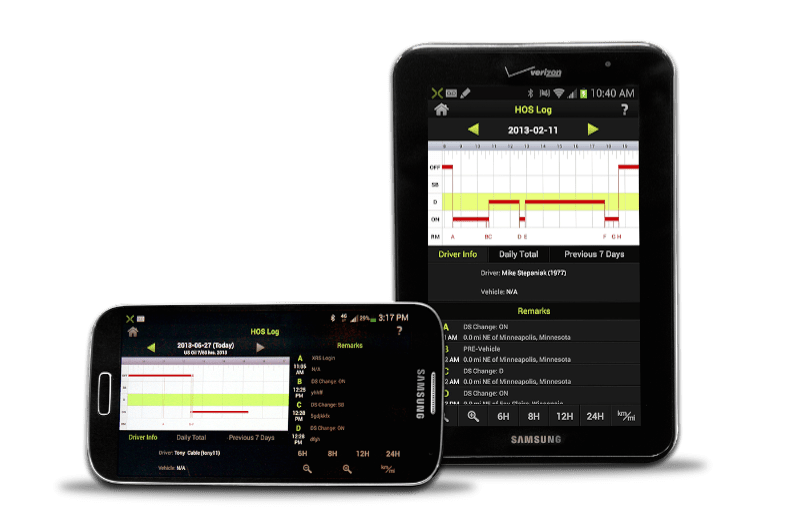What is ELD Mandate all about?
On December 2015, the U.S. Department of Transportation (DOT) and the Federal Motor Carrier Safety Administration (FMCSA) issued the Electronic Logging Device (ELD) mandate.
In 1980s, the Automatic On-board Recording Device (AOBRD) had been introduced in the fleet industry in order to record driver’s duty hours.
After a few years FMCSA re-phrased the term AOBRD as Electronic on-board recorder (EOBR), a supposedly new rule.But it was never finalized as a federal mandate.
After a long wait, in December 2015 the final rule (ELD rule) came out, keeping in mind the much needed improvement in the roadway safety laws.
The latest Electronic Logging Device rules have been designed with an intention to create a safer environment for the driver and also make it easy to maintain an accurate track of the Record of the Duty Status (RODS).
The installation of digital ELD is expected to ensure improved compliance by truck and bus drivers of the hours-of-service (HOS) federal regulations.
The Fleet management companies are required to implement the ELD mandate by December 2017 in their vehicles.
The compliance with the regulation on the published specifications by FMSCA has to be adhered by the Fleet sector by December 2019.
The reason behind re-inventing the record logging system:
In the present scenario, many drivers and fleets are already using an Automatic On-Board Recording Device (AOBRD).
This is used to record the driver’s duty hours and status in real-time. This helps to reduce the hassle of paperwork.
AOBRD was also a prior regulation issued by FMCSA on same specifications as ELD. However, the only difference is that the ELD mandate is designed with rules to strictly prohibit commercial driver harassment.
The Final Rule ensures the drivers are not coerced to violate the safety regulations or into overworking. The ELD mandate is designed with provisions to protect commercial truck and bus drivers from harassment.

Source: ELD FACTS.COM
Benefits of implementing the ELD mandate:
There are many benefits that ELD implementation can offer to all the stakeholders – the fleet drivers, fleet management companies and the law enforcement department.
Let’s try to decode these benefits and what is the value-add for the industry
- Operational costs of Fleet Management Companies: The installation of Electronic Logging Devices, the fleet management companies will have a guaranteed reduction in paperwork and can slash fuel costs.
- Road law enforcement through Roadside inspection: According to this regulation, the drivers need to electronically transfer the last 7 days record to an inspector. ELD will help in easy and efficient road law enforcement, where the driver can show the display device during a roadside inspection, to the officer.
- Other benefits of ELD devices: The vehicles installed with ELD can assist in monitoring a wide range of data other than RODS (record of the duty status) like, automated IFTA (International Fuel Tax Agreement) reporting of the vehicle, driver record reporting based on speed and hard breaking. This helps to keep a track record of rash-driving by repeat offenders.
Quoting Anthony Foxx, the U.S. Transportation Secretary, “This automated technology not only brings logging records into the modern age, it also allows roadside safety inspectors to unmask violations of federal law that put lives at risk.”
Who are required to comply with the ELD mandate?
All the North American and Canada or Mexico-domiciled drivers, who are under the records-of-duty regulation, need to comply with this ELD mandate.
Drivers who use time card exceptions and are not required to keep the RODS paper records, are exempted from ELD mandate.
The challenges – Cost of technology for implementation of ELD
This mandate has triggered a concern among the fleet management companies with respect to the technology cost.
FMCSA had made provisions to address this concern and ensure that cost of implementation doesn’t negate the benefit of savings in operational cost due to reduced paperwork.
Therefore the regulation has allowed the use of smartphones, tablets and other wireless devices as ELDs as long as they comply with all the technical specifications of the regulation mentioned on the FMCSA website.

Source: Bus & Motorcoach News
The Bird’s eye view: How will the ELD mandate fair?
This mandate has been designed to deliver lots of advantages and flexibility in implementation. It is aimed to make it easier for the drivers and the fleet management companies to focus on the core business activities rather than the driver logs.
But how the other businesses will be impacted by this mandate, still remains a million dollar question.
So, how will the Automotive market respond?How will the technology work within the vehicle architecture? What are the challenges that lurk upon the fleet management companies?
These are a few questions that the automotive industry is collectively pondering upon. Watch this space for more details about ELD and the technology implementation.

